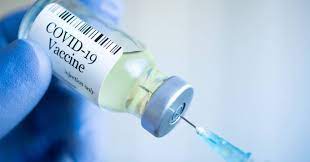Ayushman Bharat Digital Mission (ABDM) has been launched with an aim to create an online platform enabling interoperability of health data within the health ecosystem to create longitudinal electronic health record of every citizen. The mission aims to develop the backbone necessary to support the integrated digital health infrastructure of the country.
ABDM comprises of key registries which intended through building registries such as Ayushman Bharat Health Account (ABHA), Healthcare Professional Registry (HPR), Health Facility Registry (HFR), and drug registry.
ABDM intends to make healthcare more transparent, secure, inclusive, accessible, timely delivery, and most importantly citizen centric.
As on 27th November 2024, a total of 68,97,23,403 ABHA have been created, 3,49,473 health facilities have registered on HFR, 5,23,639 healthcare professionals have registered on HPR and 45,37,93,698 health records have been linked with ABHA.
Key Initiatives under ABDM:
Microsite Project: Microsites drive ABDM adoption in specific areas, onboarding healthcare providers onto the platform. Currently, 121 microsites have registered over 48,000 facilities and linked 32 lakh ABHA health records.
Scan and Share: This QR-code-based OPD registration service enables patients to share demographic details digitally, reducing queue times from 30-40 minutes to 5-10 minutes. As of November 2024, 17,481 facilities across 35 states/UTs have generated 6.64 crore tokens, saving 3.3 crore person-hours.
Scan and Pay: Patients can scan facility QR codes using PHR apps to view and pay for open orders linked to their ABHA address. As of November 2024, six facilities, led by AIIMS Jodhpur, have operationalized this service, recording 900 transactions worth over ₹ 5,00,000.
Model ABDM Facility Initiative: This initiative digitizes healthcare facilities to enhance patient care and streamline services. By November 2024, 133 facilities have been selected, with workshops conducted for action plan creation.
eSushrut Lite HMIS: This affordable, modular HMIS supports small healthcare facilities with digitization and ABDM compliance. Priced at ₹ 299/month, it integrates with national health frameworks and offers essential healthcare features.
‘Privacy by Design’ is one of the key guiding principles of Ayushman Bharat Digital Mission (ABDM) and implemented following the principles of federated digital architecture. There is no centralized repository of data. ABDM facilitates secure data exchange between the intended stakeholders on ABDM network after the patient’s consent. Several guidelines and notifications have been issued under ABDM, which set out the minimum standards for data privacy and protection. These include health data management policy, data privacy policy and ABDM health records (PHR), mobile app privacy policy. The health data management policy specifies that no data shall be shared with any other entity including insurance and pharmaceutical companies without consent of the individual. Government of India has undertaken various measures to ensure robust data security and privacy. The health data management policy is also in alignment with the provisions of the Digital Personal Data Protection Act, 2023.
As on Dec 2, 2024, a total of 1,52,544 healthcare facilities are using an ABDM enabled software. This comprises of 1,31,065 government and 21,479 private facilities.
Government has taken various steps to ensure that the benefits of the mission reach every citizen. Inclusion is one of the key principles of ABDM. The digital health ecosystem created by ABDM supports continuity of care across primary, secondary and tertiary healthcare in a seamless manner. It aids availability of health care services particularly in remote and rural areas through various technology interventions like telemedicine etc.
ABDM has provisions for assisted mode in places where internet connectivity might be poor. For instance, offline mode for creation of ABHA has been enabled wherever internet connectivity might be poor or there would be unavailability of hardware or both.
ABDM has been provided with a budget allocation of Rs. 200 crores for the FY 2024-25. Against that, Rs. 92.32 crores have been utilized as of November 20, 2024.
One of the standout innovations under ABDM is the ‘Scan and Share’ feature, which has significantly simplified the OPD registration process. This QR-code-based system has drastically reduced patient wait times by allowing patients to quickly scan and share their demographic details. With over 17000 health facilities across 35 states/UTs running this service, more than 6.6 crore OPD registrations have been completed, with an average of about 2 lakh registration tokens being generated per day. This facility has helped in reducing the waiting time in registration queues from 30-40 minutes to 5-10 minutes, saving about 3.3 crore person hours and assisting numerous citizens, including citizens of old age, pregnant ladies, children, differentially abled, in getting speedier registration done in hospitals, thereby making healthcare services more accessible. Additionally, ABDM empowers patients with control over their health records, facilitating easier access to healthcare providers and improving the overall patient experience. By promoting interoperability through systems like the Unified Health Interface (UHI) and Health Facility and Professional Registries (HFR, HPR), ABDM is ensuring smoother data exchanges between healthcare providers, thereby enhancing the quality and accessibility of care.
The Union Minister of State for Health and Family Welfare, Shri Prataprao Jadhav stated this in a written reply in the Lok Sabha yesterday.











